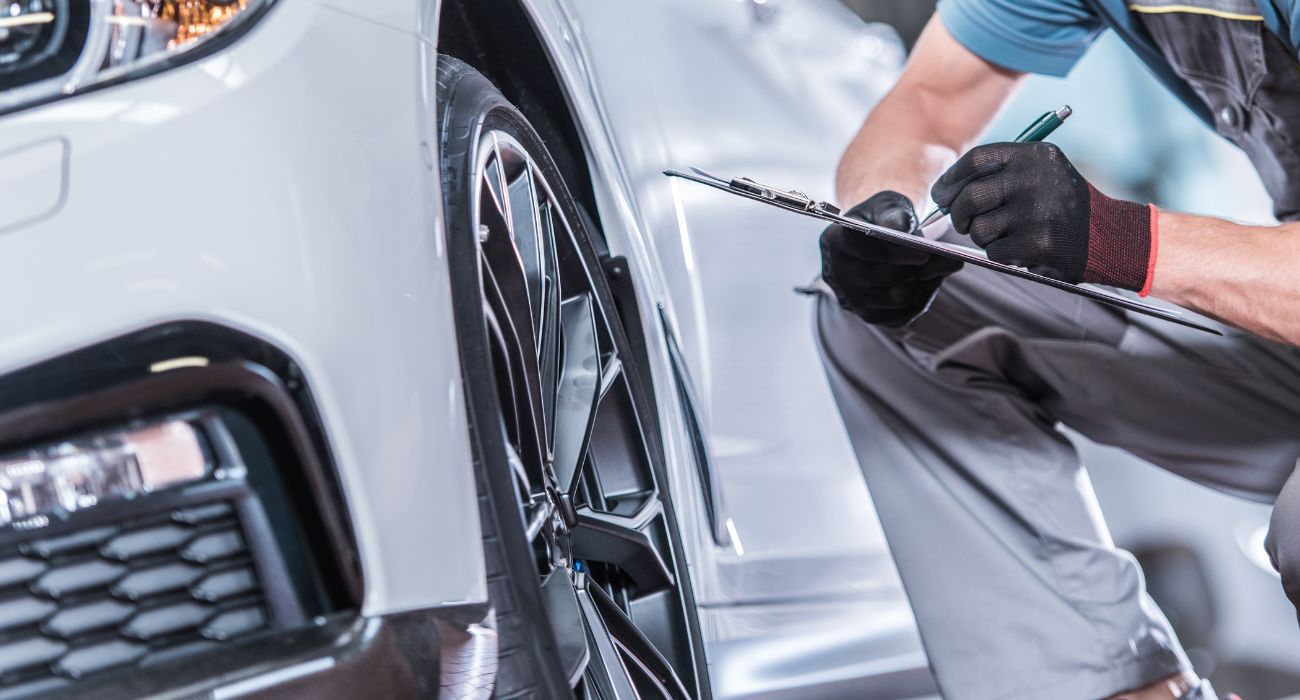Summer can be hard on your car. Here are 8 tips to make sure it stays safe and in good condition in hot conditions.
When the temperatures increase over summer in New Zealand it’s important to look after your vehicle and avoid any potential issues. Some of the most common car-related problems in the warmer months include engine overheating, broken air conditioning, low tyre pressure, weak battery, and fuel leaks.
Here are nine tips on what to check to keep your car cool and in tip-top shape this summer and into autumn.
-
Tyre air pressure
While you should be checking your tire pressure consistently, it’s even more important to check them during and after the colder months, as well as before a holiday road trip. During the warmer months, aim to check them every two weeks and particularly look out for signs that they are under or over-inflated. This can prevent a flat tyre or a tyre blowout.
Most vehicles recommend a tyre pressure between 2 and 2.4 bar (30 to 35 psi (pounds per square inch). If you’re not sure what the optimal tire pressure number is for your vehicle, refer to your manual, or check inside the driver’s door or fuel cover, as some vehicles have the information there. You should also check the air pressure of your spare tire at the same time.
-
Air conditioning system
Your vehicle’s air conditioning system extracts the warmth and moisture from the air inside your car and replaces it with air that’s cooler and more comfortable. Most modern units can also help reduce pollen levels, thanks to smart filters.
Bacteria and mould spores can build up as moisture passes through your car’s air conditioning system if it’s not used regularly, which can block the filters. Most systems also lose around 15% of their refrigerant every year, so you should have your vehicle air conditioning serviced every two years to keep it in peak condition. If your air conditioning system hasn’t been checked in the last six months, it’s recommended to get this attended to.
-
Engine temperature
While engines are designed to run hot, the summer heat accelerates the rate of fluid loss, which can cause oxidation of the car’s battery components. Vehicles use specially designed cooling systems to stay within their preferred operational range, so regularly check cooling agents like coolant levels, hoses, belts, and radiators.
If you can see leaks appearing under your car when it’s stationary, this is a sign that parts like the radiator or transmission, aren’t coping. If this is the case, take your vehicle to your local mechanic to get it checked and serviced.
-
Other fluids
This includes other fluids such as the engine oil, transmission fluid, power steering fluid, and brake fluid. The hot weather can put heavy demands on all your engine’s components, so be sure to check them to ensure they’re all at recommended levels.
-
Windscreen wipers
Good visibility is essential for safe driving. Winter can be tough on windshield wipers, particularly if you live in a region of New Zealand that experiences extreme cold and snow, so it’s likely they’ve worked overtime during the colder months.
In summer, the sun’s rays on the horizon can make it difficult to look east in the morning and west in the evening. If your wipers are leaving visible streaks or are taking several passes to clear away light rain, you should replace them. When replacing a wiper blade, it’s recommended to replace the whole blade and not just the rubber component.
-
Oil and oil filter
This is especially important if it’s been a while since your vehicle has had an oil change, as intense weather conditions of any kind can place extra demands on your car’s oil and oil filter. The oil works to keep the engine parts lubricated, while the filter captures harmful debris, dirt, and metal fragments that have made their way into the system.
-
Wheel alignment
If you feel your car is pulling to one side, or if your steering wheel vibrates or isn’t centred when driving straight, then it’s probably time for a wheel alignment check. Wheel alignment can be thrown out by general wear and tear, as well as run-ins with rough roads, potholes, and curbs. Proper alignment can help extend the life of your tyres, deliver a smoother ride, and even save petrol.
-
Brakes
Your brakes are the single most important safety feature on your car. Don’t put yourself or your passengers at risk this summer by driving with worn-down or faulty brakes. Stop-and-go traffic, long holiday road trips, and poor weather conditions may have added to the wear and tear on your brakes. So, if your brakes are making shrieking noises, or you find you’re pumping the brake pedal harder, it may be time to get them checked.
-
Get your car serviced
If you’re about to head on a road trip and you haven’t had your car serviced in the last six months, get it booked in before you go. Your mechanic will check the essential maintenance items we’ve listed above, saving you time, and giving you confidence that your vehicle is safe and in the best possible condition.



